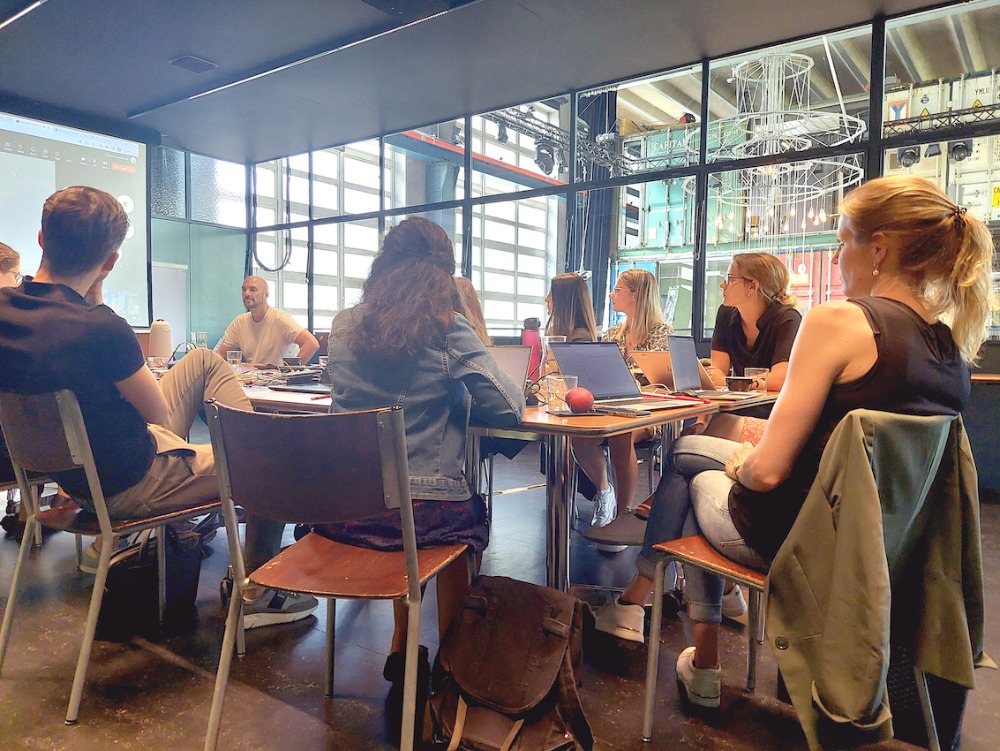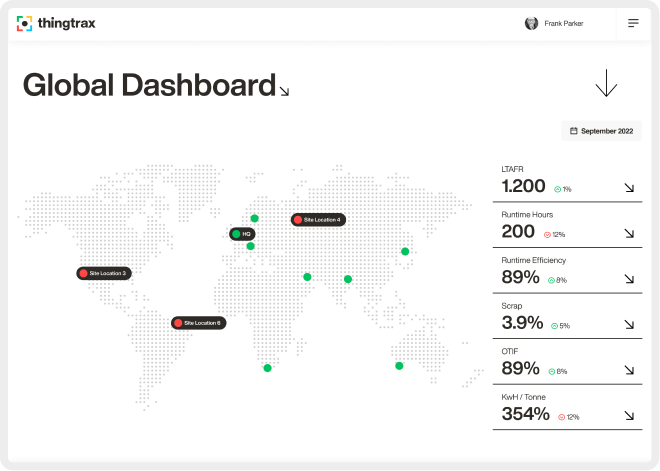Can generative AI and SEO co-exist?

by Startacus Admin
With the clear shift towards generative AI, Richard Hayes, search director at digital marketing agency Catalyst explores what it means for SEO...
As the business community continues to weigh heavily into the pros and cons associated with the latest breakthrough in generative AI, one big question continues to fly largely under the radar – what does the future of automated content mean for SEO? Here, Richard Hayes, search director at Catalyst tells you everything you need to know about ChatGPT and what it means for SEO for startups.
.jpg) If your startup is online, you will, most likely, already be well acquainted with the importance of Search Engine Optimisation (SEO). Done well, SEO – the process of improving your website by mainly focusing on keywords in order to increase visibility for potential visitors in search engines – can radically boost your startup website’s position. Of course the higher your startup is positioned on the Search Engine Results Page (SERP) the greater the chances for your website to be visited by potential customers. The result is an incredibly powerful marketing tool with almost half (49%) of marketers reporting that organic search has the best ROI of any marketing channel.
If your startup is online, you will, most likely, already be well acquainted with the importance of Search Engine Optimisation (SEO). Done well, SEO – the process of improving your website by mainly focusing on keywords in order to increase visibility for potential visitors in search engines – can radically boost your startup website’s position. Of course the higher your startup is positioned on the Search Engine Results Page (SERP) the greater the chances for your website to be visited by potential customers. The result is an incredibly powerful marketing tool with almost half (49%) of marketers reporting that organic search has the best ROI of any marketing channel.
Importantly though, SEO’s capabilities do not quite end there. What’s also great about SEO research is that the more a startup does, the more data they have about what potential customers are searching for. More than ever, amid today’s digital-first world, understanding your customers’ evolving online habits and behaviour is critical to cutting through. The rich intel provided by SEO can therefore often help typically data-poor startups fast-track this journey and begin to take a more data-driven approach to strategic decision making.
It can also help build trust and customer loyalty with minimal effort too. This is because customers are generally more inclined to trust companies that have a website that appears relatively high on search results. From thereon, they have the opportunity to take advantage of a captive audience, building further on their credibility credentials through website performance and overall digital strategy.
But while the argument for SEO may appear all but conclusive for startups, it remains to be seen how the latest developments in generative AI may impact a business’ ability to derive organic traffic through SEO.
 Inherently, any SEO strategy is only as good as the content it is founded on. It hinges on a delicate framework of regular, consistent web articles, blogs and social media posts purposefully created to contain the key words which are relevant for a brand and target the key demographic in order to attract free, organic traffic.
Inherently, any SEO strategy is only as good as the content it is founded on. It hinges on a delicate framework of regular, consistent web articles, blogs and social media posts purposefully created to contain the key words which are relevant for a brand and target the key demographic in order to attract free, organic traffic.
The introduction of the latest breakthrough in generative AI – Open AI’s ChatGPT – bringing with it a near human-like ability to generate text, code and even poetry, presents all sorts of concerns around the future of content. Specifically, what will happen if robots are used to generate SEO-related content and oversaturate the web with the same type of content?
Take, for example, if a footwear brand decides to use automation to write a ‘blog on shoe aftercare’. Any AI is trained only on pre-existing material, therefore it can only create new content that is similar to that work. This means that it cannot be impulsive or spontaneous, generate fresh ideas or invent anything. Thus, without much personalisation, all blogs on this topic would – without any personalisation - be basically the same. Of course, most online articles are used to help SEO, so it remains to be seen how brands will gain an organic visibility advantage over competitors using this method.
Though we are still in the early stages of the conversation, the good news is that startups, especially those considering the integration of generative AI either now or in the future, shouldn’t be daunted by this evolution.
Indeed, ChatGPT and other generative AI tools can be used to generate SEO content but that doesn’t necessarily mean they should be – at least, not in its entirety. At the moment, Google algorithms are able to identify and penalise AI-generated content. This means, even when using AI to generate basic content to save time, there should always be some level of human intervention to develop it further for the audience and ensure some level of originality.
In other ways though, ChatGPT can be used to elevate copy further. It can be used, for example, to render the often mundane task of keyword research practically effortless. Users simply need to type in a few example target keywords, and ask for related ones. A short while later, it is able to produce a vast list of keywords and phrases – which, again, may still need adapting – something which would take much longer via a traditional manual research.
What’s also great in terms of SEO-related potential is ChatGPT’s ability to go beyond words and really drill down into the search intent – the need behind the search query - of the user. For example, users can copy-paste a list of search queries and ask for the intent of the query using the prompt, ‘what is the user intent behind these queries?’ This can ensure each piece of related content is able to answer the query better in order to shoot up the rankings.
Ultimately, much like the technological breakthroughs that have come before it, ChatGPT – while certainly offering considerable benefits – cannot fully replace the intelligence of the human brain. Rather, it should be used as a complementary tool that can help startups to enhance their SEO strategy in order to take their online presence further, and faster.
 ABOUT THE AUTHOR
ABOUT THE AUTHOR
Richard Hayes is Search Director at Catalyst. Catalyst is a well-established, full-service digital marketing agency dedicated to doing things differently - by placing focus on tangible results (rather than vanity metrics) to deliver meaningful business impact. With offices in both Birmingham and London, the business specialises in providing marketing support to B2B and B2B businesses operating in sectors including finance, energy, tech, manufacturing, insurance and office design build.
Subscribe to our newsletter
If you would like to receive our startup themed newsletter, full of the latest startup opportunities, events, news, stories, tips and advice, then sign up here. How Manufacturing Businesses Can Reduce Energy Costs
How Manufacturing Businesses Can Reduce Energy CostsGot a business in the manufacturing sector? These tips on how you can reduce energy costs while being more sustainable are well worth a read...
 SureIn Secures €4M to Close the SMB Insurance Gap
SureIn Secures €4M to Close the SMB Insurance GapInnovative InsurTech startup SureIn announces a €4M Seed round to further its mission of making insurance easy, transparent and hassle-free for SMBs.
 How IoT Is Revolutionising Consumers' Daily Lives
How IoT Is Revolutionising Consumers' Daily Lives Nassia Skoulikariti, Director of IoT Programmes, Mobile Ecosystem Forum shares some insights on how IoT is having a significant impact on all our lives.
 How to invest in tech companies with the help of AI
How to invest in tech companies with the help of AIRoger James Hamilton, Founder and CEO of Genius Group, a world-leading entrepreneur Edtech and education group, discusses how introducing a globalized curriculum will help better prepare students.
 SuperFi raises $1M pre-seed funding round
SuperFi raises $1M pre-seed funding roundSuperFi, the debt prevention platform, has announced a $1m pre-seed funding round to support people during the cost of living crisis.
 Startups rely on AI & sustainability for new partnerships
Startups rely on AI & sustainability for new partnerships41 startups from 13 countries, including the UK, have been selected for the 8th Kickstart Innovation program, one of Europe’s leading innovation platforms.
 Another Round closes £300k Seed round to revolutionise personal training
Another Round closes £300k Seed round to revolutionise personal trainingPersonal training platform Another Round has secured £300k in its latest fundraise, including investment from angels and its community.
 Thingtrax Secures £4.3M
Thingtrax Secures £4.3MThingtrax Secures £4.3M to Empower Manufacturers to Build the Factories of the Future
 A measure of inflation relief for small firms
A measure of inflation relief for small firmsA measure of inflation relief for small firms sees transport costs fall but service price increases remain elevated
 A look at HR tech startup HR DataHub
A look at HR tech startup HR DataHubBedfordshire-based HR tech startup HR DataHub has built a range of tools for HR departments
Published on: 16th May 2023
If you would like to enable commenting via your Startacus account, please enable Disqus functionality in your Account Settings.







- SureIn Secures €4M to Close the SMB Insurance Gap 15th Aug 2023 Innovative InsurTech startup SureIn announces a €4M Seed round to further its mission of making insurance easy, transparent and hassle-free for SMBs.
- SuperFi raises $1M pre-seed funding round 28th Jul 2023 SuperFi, the debt prevention platform, has announced a $1m pre-seed funding round to support people during the cost of living crisis.
- Startups rely on AI & sustainability for new partnerships 27th Jul 2023 41 startups from 13 countries, including the UK, have been selected for the 8th Kickstart Innovation program, one of Europe’s leading innovation platforms.
- Another Round closes £300k Seed round to revolutionise personal training 21st Jul 2023 Personal training platform Another Round has secured £300k in its latest fundraise, including investment from angels and its community.

.jpg)






 Daniel Dierkes, David Schara, and Maximilian Geißinger 2.jpeg)

.jpg)




















